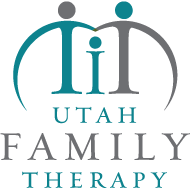What are Anxiety Disorders?
Table of Contents

People with Anxiety disorders refer to a group of mental health conditions that cause people to feel intense and excessive worry or fear about various events, circumstances, and objects.
These universal feelings of anxiety are normal reactions to stressful and dangerous situations.
Still, when they become too frequent, occur with no logical reason, or interfere with an individual’s day-to-day routine, they may indicate the presence of an anxiety disorder.
Common symptoms of anxiety disorders include difficulty sleeping, irritability, fatigue, and muscle tension. Treatment usually involves some combination of medication, lifestyle changes, and therapy.
Treatment usually involves some combination of medication, lifestyle changes, and therapy.
Occasional anxiety is normal and natural; however, it’s not ongoing worry or irrational fears and does not affect job performance.

History of Anxiety
Anxiety is one of the oldest recorded emotions in history and can be traced back to ancient Greek literature.
Since then, it has become known as a more generalized emotional state that involves feelings of fear, panic, distress, and apprehension that can occur in reaction to many different situations.
Anxiety disorders are psychiatric disorders commonly affecting adults and children that involve persistent fear or worry.
In contemporary times, anxiety has been studied extensively, with many different findings regarding its root causes, effects on behavior, and overall mental health outcomes.

8 Common Types of Anxiety Disorders
1. Generalized Anxiety Disorder
Generalized Anxiety Disorder (GAD) is persistent and excessive worry about several different things.
When Struggling with Chronic anxiety, it is essential to remember that you are not alone and there are many resources available to help you manage your anxiety disorder.
People with GAD may have difficulty controlling fear and often feel excessively anxious about day-to-day activities.
Symptoms of GAD can include restlessness, feeling on edge, fatigue, difficulty concentrating, irritability, restlessness, muscle tension, and sleep disturbances.
Treatment for GAD typically includes:
- Talk Therapy
- Cognitive Behavioral Therapy (CBT)
- Medications to Manage Symptoms
- Self-help Techniques
- Relaxation techniques
- Mindfulness Meditation
- Intensive Outpatient Program
2. Panic Disorder
Panic disorder is repeated episodes of intense fear.
These panic attacks accompany physical symptoms such as heart palpitations, sweating, trembling, shortness of breath, chest pain, and nausea.
If you’re struggling with panic disorder, you constantly worry about when the next attack will occur and develop intense anxiety between episodes.
Treatment for panic disorder typically includes:
- Medications to Manage Symptoms
- Talk Therapy
- Intensive Outpatient Program
3. Social Anxiety
Social Anxiety Disorder (SAD) is characterized by intense fear and avoidance of social situations.
People with SAD often feel excessively self-conscious in social situations, worrying that others are judging them or that they will be embarrassed or humiliated.
Symptoms of SAD can include blushing, sweating, trembling, difficulty speaking, and avoiding eye contact. Treatment for SAD typically include:
- Talk therapy
- Relaxation Techniques
- Intensive Outpatient Program
- Medication, if needed.
4. Specific Phobias
People who experience specific phobias have intense fears related to particular objects or situations, such as heights, flying, animals, or needles.
When someone is exposed to their source of fear, they could suffer a panic attack. They may take extraordinary measures to stay away from the object that causes the phobia.
Treatment options include:
- Exposure Therapy
- Cognitive Behavioral Therapies (CBT)
5. Obsessive-Compulsive Disorder (OCD)
Obsessive-Compulsive Disorder (OCD) is an anxiety disorder with intrusive thoughts and repetitive behaviors. People with OCD often have obsessions, which are persistent and unwanted thoughts, images, or urges that cause distress.
They may also have compulsions, which are repetitive behaviors or rituals that they feel driven to do to reduce their anxiety. Treatment for OCD typically includes medications to help manage
Treatment options may include:
- Medical and psychological therapy.
- Medications such as Selective Serotonin Reuptake Inhibitors (SSRIs)
- Cognitive Behavior Therapy
- Exposure Therapy
- Intensive Outpatient Program
- Tailored Treatment Plan
6. Post-Traumatic Stress Disorder (PTSD)
Post-Traumatic Stress Disorder (PTSD) is a disquietude affliction sourced by experiencing a harrowing event.
It may bring about flashbacks, intrusive cogitations, nightmares, difficulty falling asleep, dread and evasion of certain incidents that are reminders of the frightful event.
PTSD impacts diverse people in different ways; however, symptoms typically countenance hyperalertness and disruptive rememorizing of the terrifying event.
Seeking help from an adept is crucial as long-term shunning and denial can be harmful.
Treatment may include:
- Cognitive Behavioral Therapy (CBT)
- Medication Like Antidepressants or Antipsychotics
- Eye Movement Desensitization and Reprocessing (EMDR)
- Internal Family Systems (IFS)
- Brainspotting
- ABFT
7. Acute Stress
Acute Stress Disorder (ASD) is anxiety that can happen after experiencing or witnessing a traumatic event.
Symptoms of ASD include flashbacks, nightmares, difficulty sleeping, irritability, and feeling on edge.
Treatment for ASD typically includes:
- Talk Therapy
- Cognitive Behavioral Therapy (CBT)
- Medications to Manage Symptoms
- EMDR
- IFS
8. Separation Anxiety
Separation Anxiety Disorder (SAD) is characterized by intense fear and distress when separated from a person or place that provides security or safety.
Symptoms of SAD can include:
- Excessive worry about being separated.
- Difficulty sleeping away from home.
- Nightmares about separation.
- Physical symptoms such as headaches and stomachaches.
Treatment for SAD typically includes:
- Talk Therapy
- Cognitive behavioral therapy (CBT)
- Face & Manage Fears
- Medication, if needed.
- Intensive Outpatient Program

Common Symptoms of Anxiety
The signs and symptoms of anxiety disorders can differ according to the type of disorder.
Common symptoms include:
- Excessive or constant worry
- Rapid Heartbeat
- Restlessness
- Difficulty concentrating
- Irritability
- Extreme Fear
- Physical symptoms such as headaches and stomachaches in everyday life.
Other common symptoms include difficulty sleeping, avoidance of certain situations or activities, and feeling on edge.
People with a social anxiety disorder may experience blushing, sweating, trembling, difficulty speaking, and avoiding eye contact.

Moving Forward
People with Anxiety Disorders say life can be overwhelming and extremely difficult to function. Managing the symptoms of an anxiety disorder requires a comprehensive approach that includes lifestyle changes, psychotherapy, and sometimes medications.
This approach will help reduce your anxiety symptoms, improve your quality of life, and help you cope with challenging situations more effectively.
Making lifestyle changes such as regular physical activity, improving your diet, finding enjoyable stress-management techniques like mindfulness meditation, and improving sleep habits can all go a long way toward managing anxiety disorder symptoms.
Working with a qualified mental health professional can also be very helpful in relieving your fear or distress related to your worries or thoughts and creating a treatment plan.
Therapy can also provide you with valuable coping skills to handle upsetting emotions more effectively.
Suppose lifestyle modifications aren’t enough to manage the intensity of the symptoms. In that case, medications may be required and should be discussed with your doctor or medical provider.
You may even need to take some Anti-Anxiety Medications because excessive fear or intense anxiety can control your life and prevent you from living your life with purpose.
12-Week Compassion Group Intensive Outpatient Program for severe anxiety, learn to move forward despite the challenges you face.
